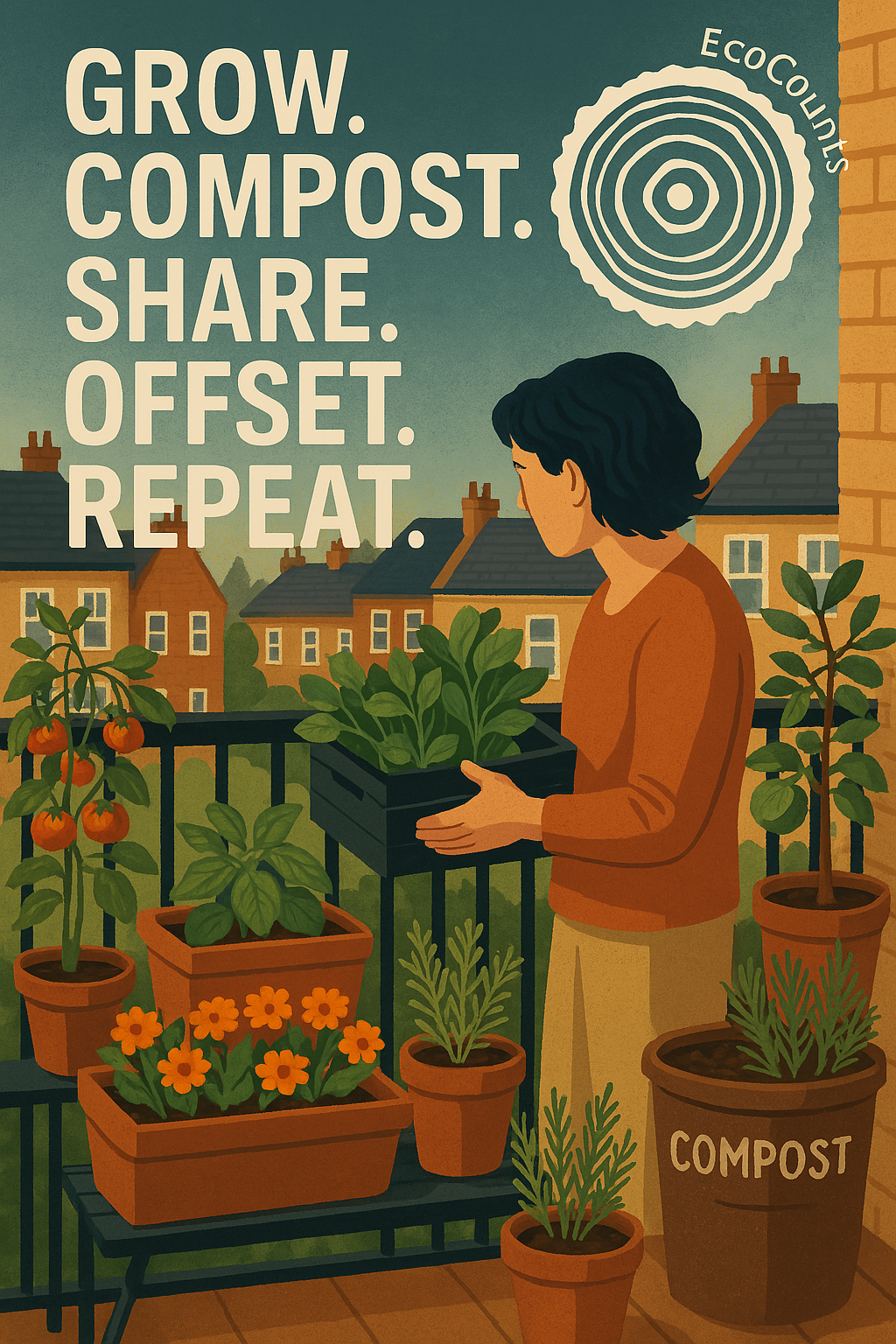
Please give your feedback and suggestions on this proposal which will be trialled and refined at other EcoCounts events:
Objective:
To engage participants in practical, hands-on solutions for reducing their carbon footprint through permaculture principles, including biochar production, urban food growing, and regenerative agriculture techniques.
Key Workshop Elements:
1. Biochar Demonstration & Giveaway
Pre-made biochar brought in a kiln to showcase the process.
Short time-lapse video of how it was made, emphasizing safety and efficiency.
Attendees receive a sample to use in their gardens.
2. Urban Food Growing Solutions
Display of a half-barrel plant guild mini food forest (for a south, east, or west-facing balcony).
Pictures and examples of:
Windowsill herb gardens.
Tomatoes grown directly in compost bags.
Rainwater harvesting solutions for different living situations.
List of perennial plant alternatives to annual crops which serve multiple purposes and include their light, soil preferences, and climate resilience.
3. Composting & Soil Health
Introduction to Japanese cold composting (Bokashi). The bokashi process uses a carefully selected mixture of microorganisms, including bacteria, yeasts, and fungi, to facilitate fermentation of organic waste. These microbes break down the waste in an anaerobic (no oxygen required) environment, creating a pre-compost product - a nutrient rich soil conditioner. The fermented waste cannot be used directly as compost in the garden but must first be buried in soil or added to a traditional compost pile to finish decomposing. Any kind of food can be added to a bokashi bin, but avoid adding liquids or oil as they disrupt microorganisms and the fermentation process leading to a smelly bin. Try drying out anything wet before adding it to the bin. Layering oily residues in moderation with drier materials like cardboard or paper towels can also help manage moisture and prevent the bin from becoming too wet.
Introduction to wormeries
It was recently discovered that waxworms and mealworms do not directly break down polystyrene on their own; it’s the bacteria in their gut that are the real heavy-lifters. These microorganisms help break down the plastic into more digestible and non-toxic substances.
List of community gardens in London where people can compost their food waste.
Simple regenerative agriculture techniques for small and large-scale growers.
4. Energy-Efficient Living
Examples of earthship design integration into traditional housing (e.g., passive greenhouses, earth sheltering).
UK-based architects/projects that have incorporated these ideas. Islington Energy advice
5. Resources & Takeaways
Locally grown veg bag schemes in London.
Online resource hub with follow-up guides and access to physical resources.
Easy-to-carry giveaways:
Small, transportable plant starts or seed packets for any space/light condition.
Biochar samples.
Possible next Steps:
Gather feedback on scope, feasibility, and key topics/messaging.
Adjust based on suggestions to make it as effective as possible.
Trail run throughs at EcoCounts meeting and events @
Draft email pitch for the London Permaculture Festival organizers.
@composting @raising awareness @permaculture @bokashi @biochar @plants @vermicompost